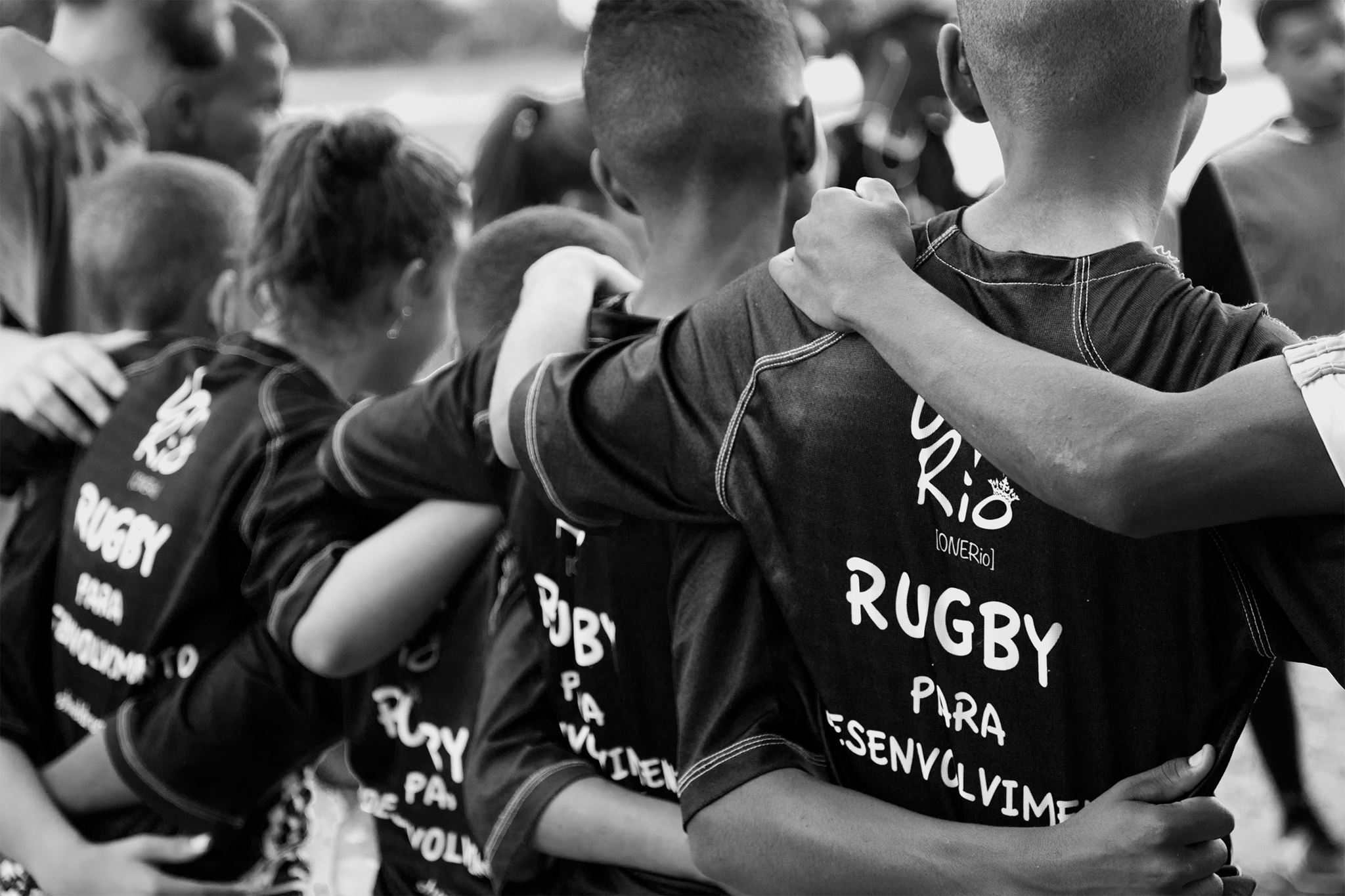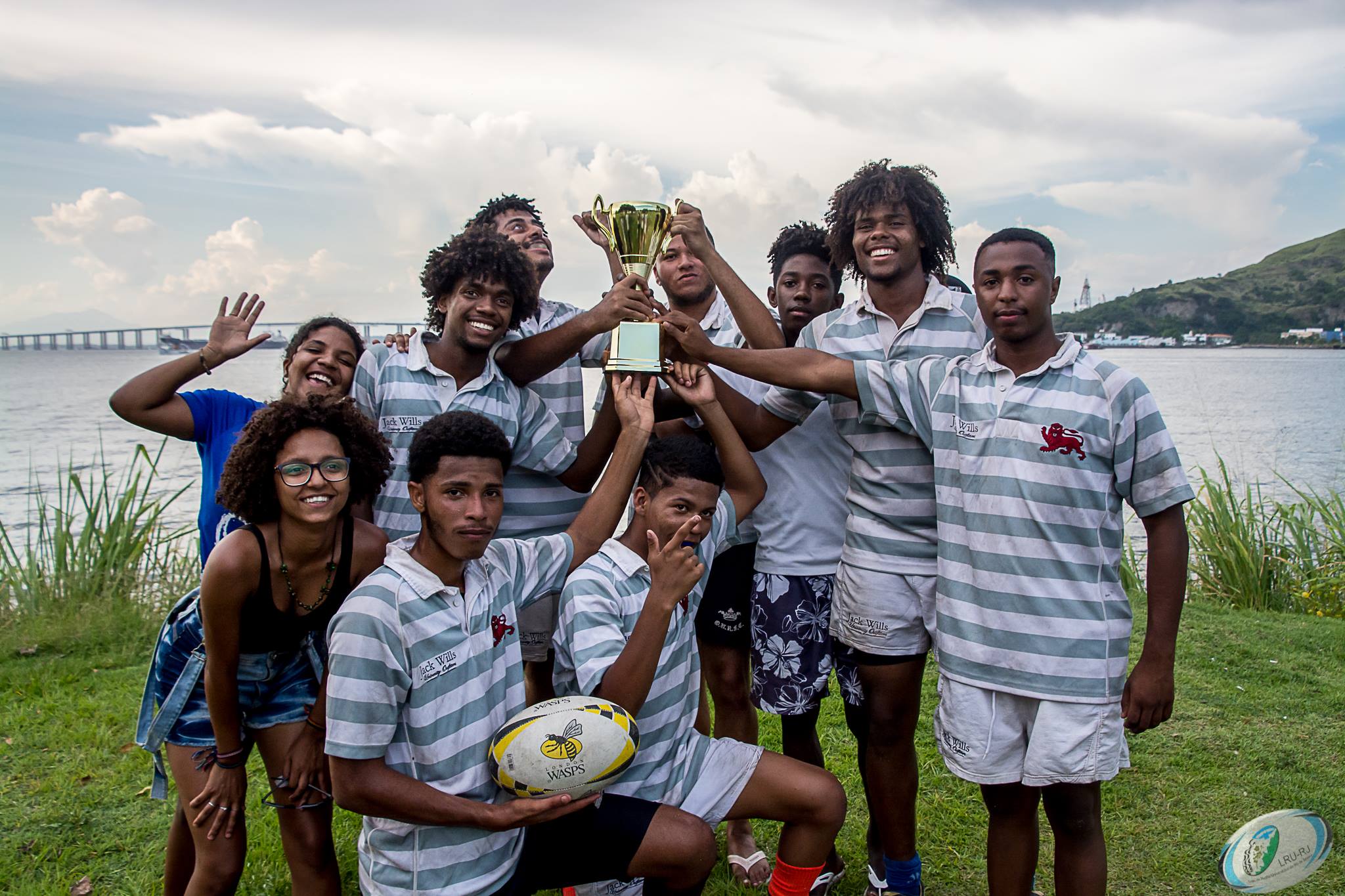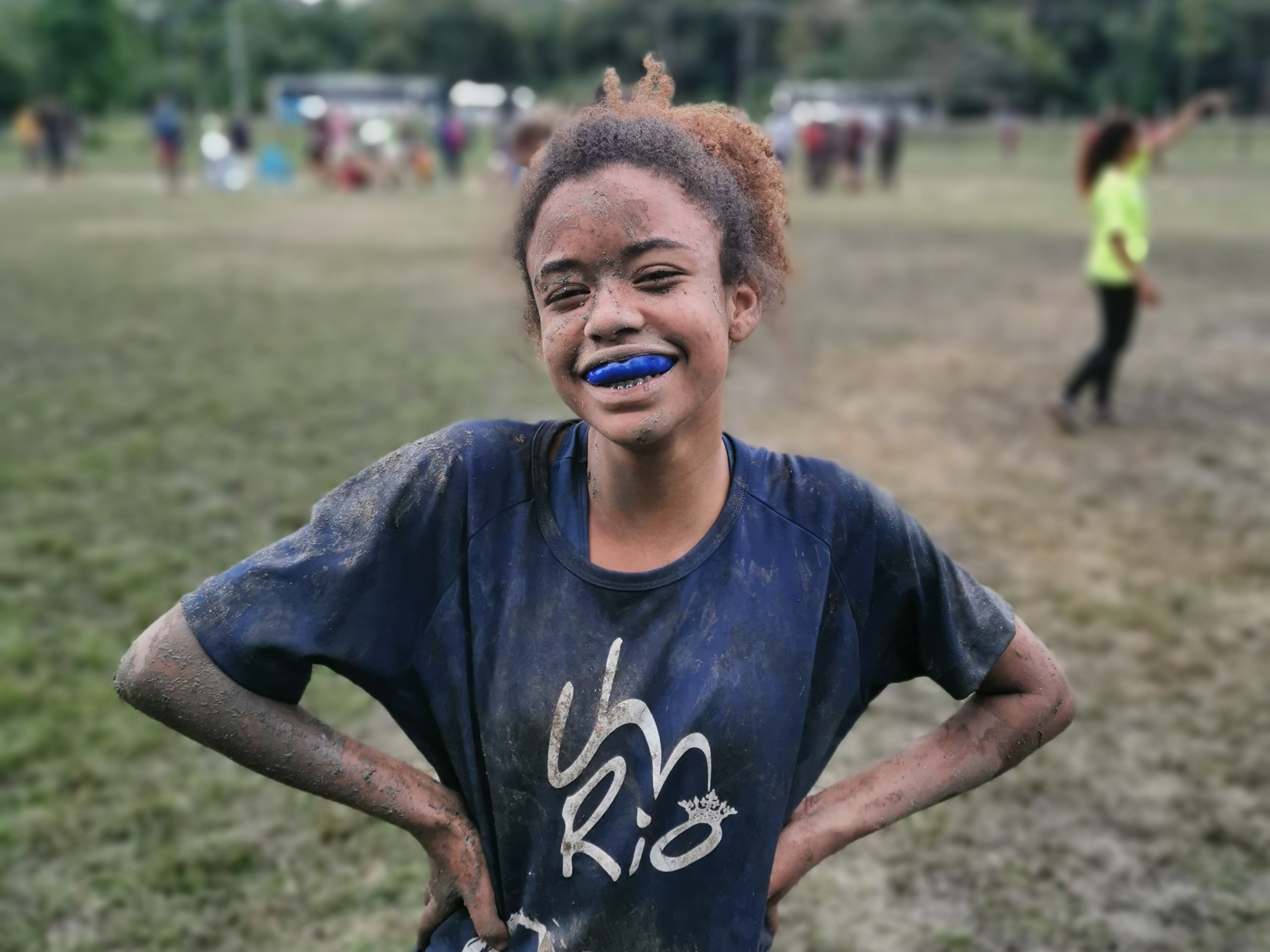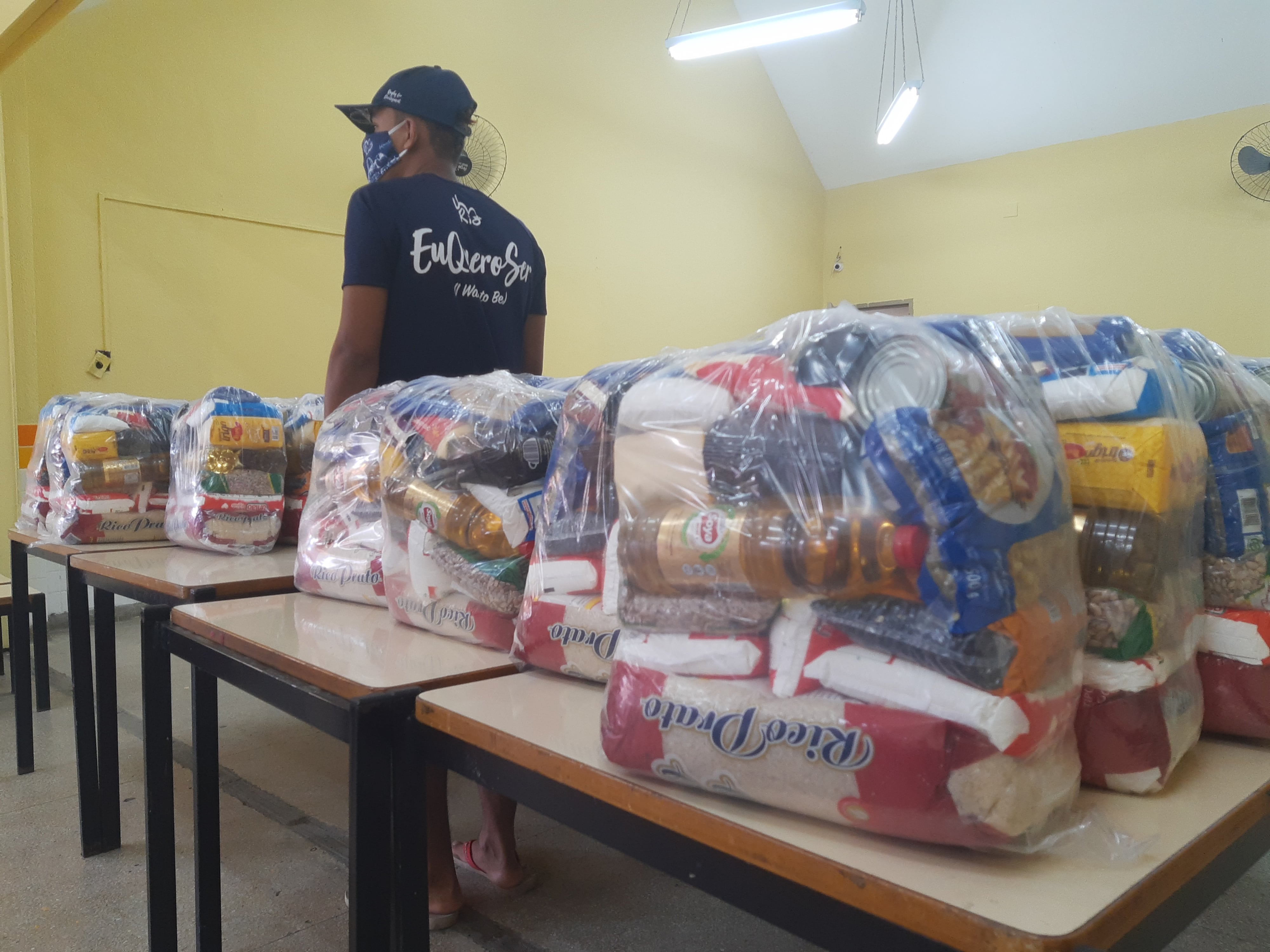
UMRio: Reducing Inequality for Brazilian Youth through Rugby
Helping young people shape their own futures, rather than have their circumstances define it for them
September 18, 2020
From September 15 to 25, we are highlighting the stories and work of our 2020 Beyond Sport Global Awards Shortlisters who are using sport to address marginalization, disadvantage and inequality head on. Brazil’s UMRio/OneRio is one of them. Learn more about the inspiring work they are doing with youth in São Gonçalo, Rio de Janeiro.
The vibrant community of Morro do Castro (MdC), one of the more isolated favelas of Greater Rio, is marked by failing public education, healthcare and public services for its 9000 residents. Coupled with a stigma of criminality and danger – primarily due to the extensive lack of social and economic opportunities (the average per capita income is less than $1.50 USD/day) – a ‘second-class citizen’ reality is firmly in place that is often internalized by its young residents.
To address this, British Brazilian Robert Malengreau launched UMRio in 2013 with colleagues from Oxford University Rugby Club based on a simple idea: to use rugby as an entry point to create a safe and enabling environment for vulnerable kids in the area to develop skills and gain access to services and opportunities that would help move the dial towards equality.

Selecting MdC due to the greater needs of the community, they worked with the João Brazil school - the only primary school in the favela – to launch the program.
Rugby was and still is a relatively new sport in Brazil, but that has only benefited the organization, enabling it to build a sporting culture from the ground up and directly connect it to positive outcomes.
“By offering a safe space in Morro do Castro for our young people to meet and engage in a new sport, we can interact with them in a playful environment. UMRio harnesses the power of rugby and in particular, the self-respect and ‘squad values’ it conveys, to provide healthy alternatives to some of the hardest to reach young people, encouraging them to re-channel feelings of withdrawal or aggression into a competitive, constructive and social structured setting,” stated Malengreau.
In Brazil, rugby has a uniquely strong culture of volunteerism and camraderie tied to it and high participation rates among women, which is also uncommon. Both add to UmRio’s success in leveraging the game as a gateway to ‘life-changing education, employability and healthcare services – with a particular focus on poverty and gang involvement.’

“It being a physical sport, it demands some sacrifice for your teammates, and we’ve seen that develops a camaraderie amongst teammates…The contact nature of it also develops a sense of self-discipline and self-confidence as you master those situations that, to begin with, seem very daunting. Ultimately, you become more comfortable and in control of those situations,” stated Dom Waldouck, UMRio Trustee and Gloucester Rugby Defence Coach.
“And I think that the values the game promotes…around respect: your teammates, your position, the referee. These sorts of values are very aligned to the development objectives we’re targeting. Those three pillars are at the core of what makes rugby such a great sport for social development,” he continued.
The growth and integration of UMRio into MdC has been remarkable. It started out seven years ago with rugby basics coaching for 30 young people for two hours a week. Now it has since grown to over 400 young people and adults participating in its six days per week of programs across four age groups supported by over 50 dedicated volunteers worldwide.
“Back in 2013, the kids were unsure of the oval ball and the new rules that came with it, but their love for the sport has grown exponentially,” said Malengreau. “Nicknamed ‘Morro do Rugby’, our kids in Morro do Castro adopted rugby as their sport of choice and a way of life.”
UMRio’s programs include: Eu Quero Ser and its ‘I Will Be’ Scholarship currently targeting students living on less than $1/day, Youth Leadership, Employability and Project Based Learning.

With play stopped because of the pandemic, it also launched digital robotics, e-sports and remote programming with partners to provide competition and engagement opportunities. And with poverty increasing due to COVID-19, it has increased its efforts - supporting community residents with healthcare, communication, scholarships and food security. During COVID-19, UmRio interventions have more than tripled the per capita income of the most vulnerable.
“In the land of Pelé and football, it’s quite unique to have a favela where rugby dominates to such a degree that other teams wait for the rugby teams to finish in a space before they play football games,” said Malengreau. “Our kids are now perceived as local ambassadors - leaders in the community who striving to achieve and overcome inequality and reach their full potential.
The “I will be: Rugby for social mobility & inclusion” program from UMRio is a 2020 Beyond Sport Global Awards Shortlister in the Sport for Reduced Inequalities Category. Learn more about the rest of this year’s Shortlist and follow their journeys at beyondsport.org/journey
Information courtesy of:
-UmRio Annual Reports (2018- Quarter 3, 2020)
-‘Does Rugby Participation Foster Attitudes that Promote Academic Attainment?’ Thesis, Dom Waldouck (2019)
-Lessons from the Favela: Sport and Social Exclusion in Rio de Janeiro by Robert Malengreau and Daniel Guinness (May, 2017)